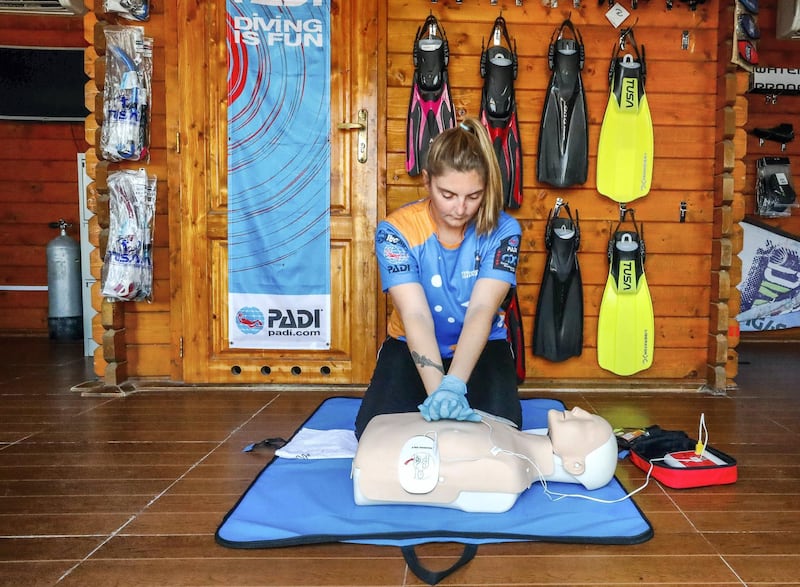When someone’s heart stops beating, seconds count. If nothing is done after a cardiac arrest, a victim’s chance of survival drops by 10 per cent every minute. Simply waiting for an ambulance, no matter how swiftly it arrives, can limit their chances of survival and after 10 minutes, they will almost certainly be beyond medical help.
On the other hand, if cardiopulmonary resuscitation, or CPR, is started as soon as someone collapses, their survival rate drops by no more than three per cent a minute.
Even if it takes the ambulance 10 minutes to arrive, the patient will still have a 70 per cent chance of surviving.
CPR works by taking over from the heart and manually pumping oxygen-rich blood into the arteries around the body, keeping the brain cells alive until the heart can be restarted with an electric shock from a defibrillator.
It’s simple enough to do but unfortunately, too few people in the UAE know how to carry out CPR, or are willing to do so, with the result that hundreds of lives are being cut short unnecessarily. Some people are reluctant to perform “traditional” CPR, which involves mouth-to-mouth resuscitation, for cultural reasons.
But they don’t have to – chest compressions alone can be enough to save a life. Others fear they will make the situation worse but if someone has collapsed and isn’t breathing without help, they will almost certainly die.
A few cracked ribs is a small price to pay for a saved life. But according to first-aid trainers in Abu Dhabi, a major reason people in the UAE and the wider Arab world hesitate to step in is because they fear prosecution or civil action if someone they help doesn’t survive.
This fear stems from well-intentioned laws, designed to ensure that families are compensated for the loss of a loved one by whoever is held responsible for their death. It is only right and proper that malicious intent or harm should be punished. But if an unanticipated side effect of a law that has not evolved at the same speed as the UAE’s cosmopolitan society is that it is costing lives, then it is surely time to consider “good Samaritan” legislation, common in many countries around the world, waiving legal and civil responsibility for anyone who, in good faith, does their best to save a life.
Of course, good intentions would have to be proven. Most cardiac arrests are suffered at home or in the street so it behoves us all to learn this crucial skill. The FNC could usefully debate a law change proposal. It is undoubtedly a discussion worth having.





